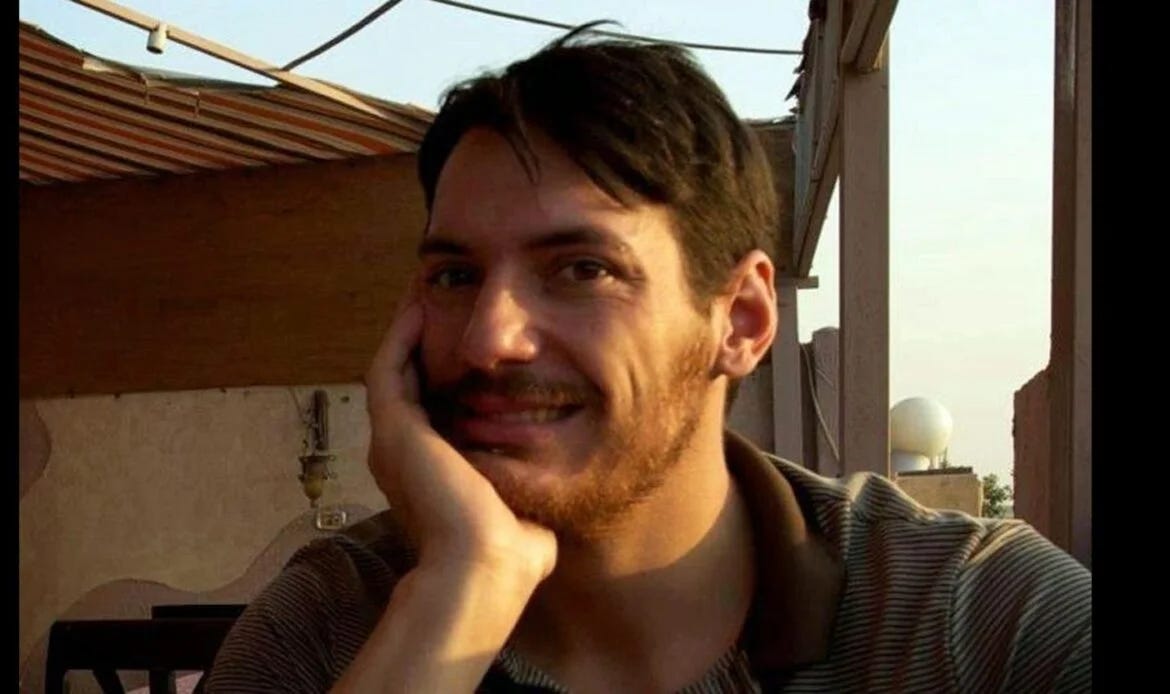What happened to journalist Austin Tice?
Collapse of Syrian government could bring revelation -- and freedom
The fall of Syrian President Bashar al-Assad on Dec. 8, 2024, has raised hopes for a resolution of the disappearance of American journalist Austin Tice, who was abducted near Damascus in 2012 at the start of the country’s civil war.
Though news reports frequently show rebels ransacking the presidential palace and freeing political prisoners, so far, no details have surfaced about Tice other than that his parents are “more hopeful” that he will be coming home. In a speech the day Assad fled the country, President Biden said of Tice, “We believe he’s alive.”
The question is, if Tice is alive, why have the rebels who overtook the country not found him nor taken credit for freeing him?
On Dec. 16, 2024, the New York Times reported that Tice’s mother had written a letter to Israeli Prime Minister Benjamin Netanyahu saying that her family had “credible information” her son may be held in a prison outside Damascus, and urging the Israelis to pause military strikes in the area to allow rescuers to search the site. Netanyahu offered no public response.
Tice, a freelance journalist and veteran of the U.S. Marine Corps who served in Afghanistan and Iraq, was abducted near the Syrian capital on Aug. 13, 2012. The following month, a disturbing 47-second video was released that showed him blindfolded and bound. The following October, the United States government maintained that Tice was in the custody of the Syrian government. The Assad regime long claimed it was not holding Tice and had no information about him.
The last time Tice was seen in public was in early 2013, when he was able to escape his cell and was spotted wandering the streets of Damascus in ragged clothes, asking for help. He was then presumably recaptured by pro-government forces. The group Reporters Without Borders later launched a public awareness campaign in hopes of gaining his release.
In April 2018, the FBI offered a $1 million reward for information regarding Tice’s whereabouts. Four months later, U.S. officials said an “ongoing dialogue” with the Syrian government included Tice’s fate. Then, in the summer of 2020, Kash Patel, acting as the White House counterterrorism adviser, traveled secretly to Damascus with a U.S. hostage negotiator in an unsuccessful attempt to win Tice’s release.
Tice, who is originally from Houston, Texas and would now be 43, decided to travel to Syria in May 2012 and spend the summer before his final year at Georgetown Law School working as a freelance journalist covering the war for The Washington Post, McClatchy and other news outlets, according to a website created by his family.
Image: Austin Tice (via CNN, courtesy his family)






I assume Tice's military experience would not be too hard to find. If the Assad regime was aware he entered the country they would have perceived him to be an intelligence operative and targeted him.
I wonder if he saw something he should not have and was caught writing about it. Inside the prison that was recently searched by the rebels after they had won their fight said there were rooms filled with unburied bodies. They also found some kind of press made of heavy metals and powered to flatten stuff and learned this is how they executed prisoners. Around the area with the unburied bodies there were a lot of bone fragments. I hope he was not executed like this. I was sickened when I saw the videos. And thinking about a journalist from the US might have died like that makes me mad in the very core of my being. It makes me feel the same way about the Syrian people who died like that, but while I have never met Austin, him being a fellow American makes me feel a 1:350,000,000 connection to him which is like losing a friend to violence after being kidnapped.